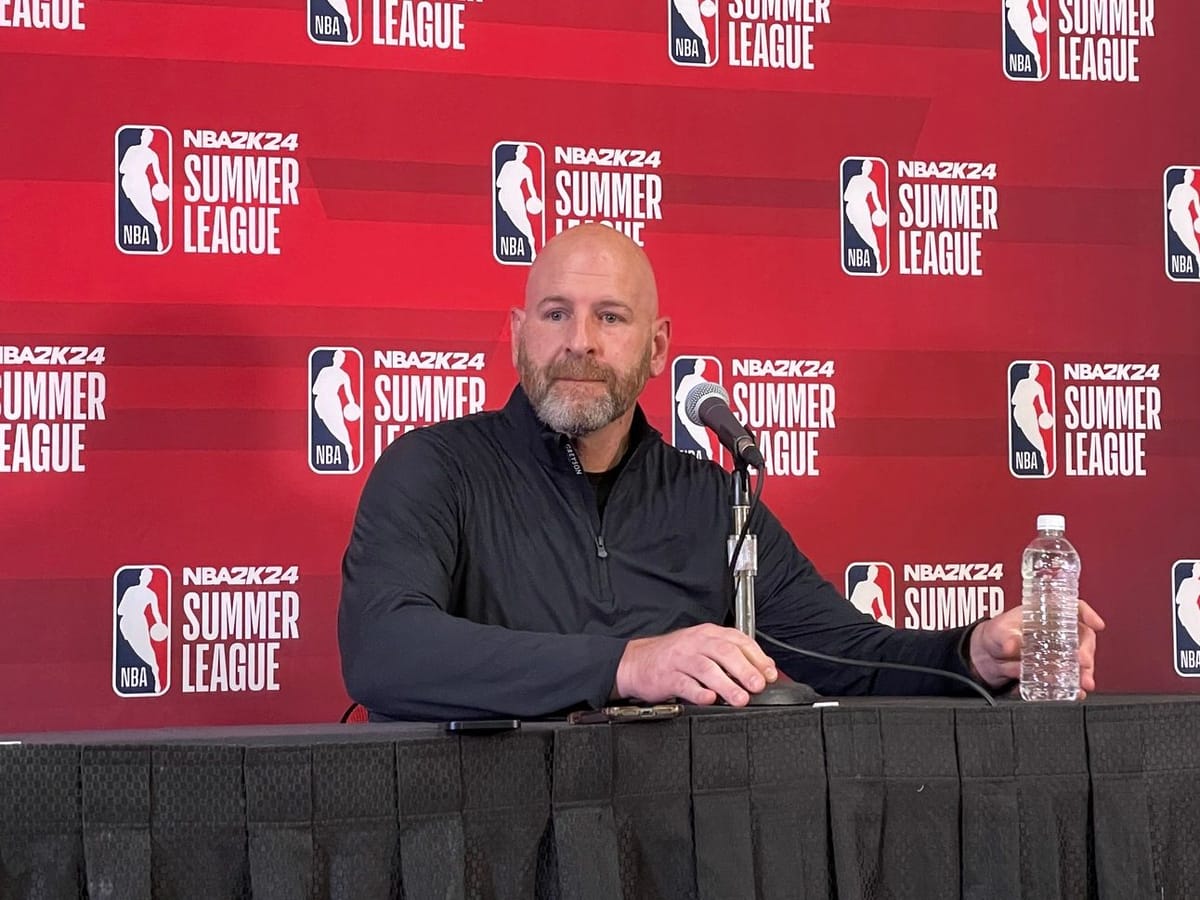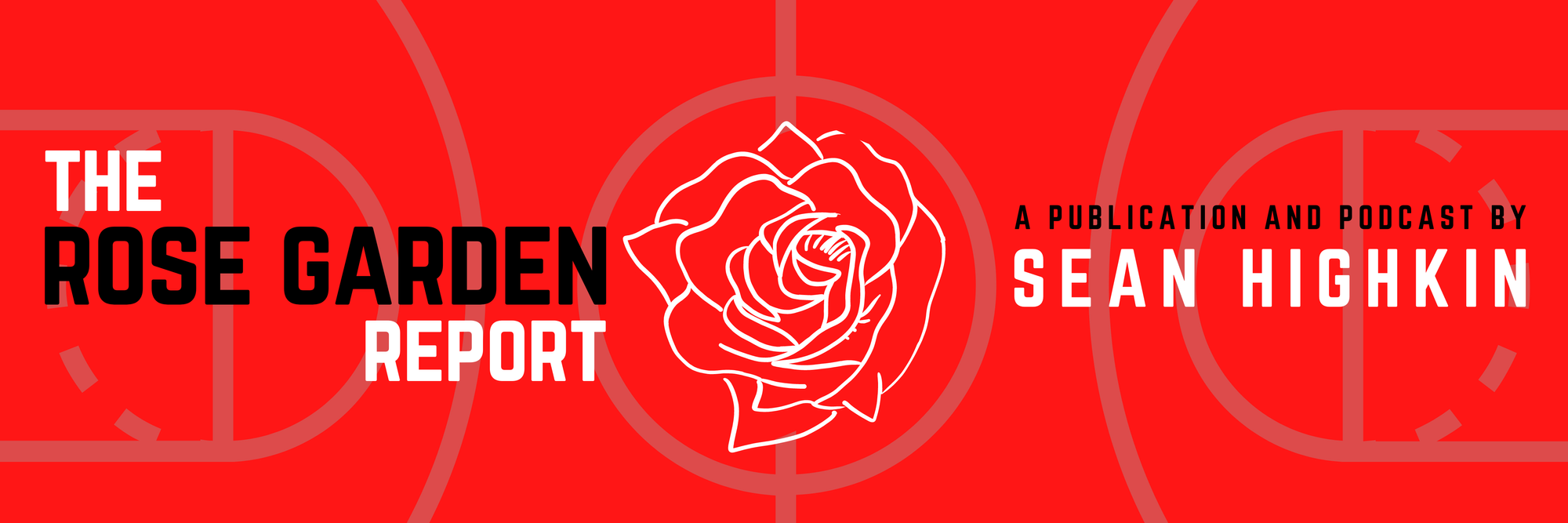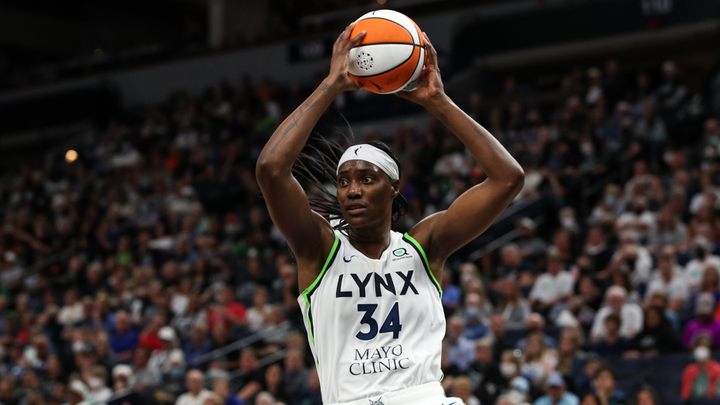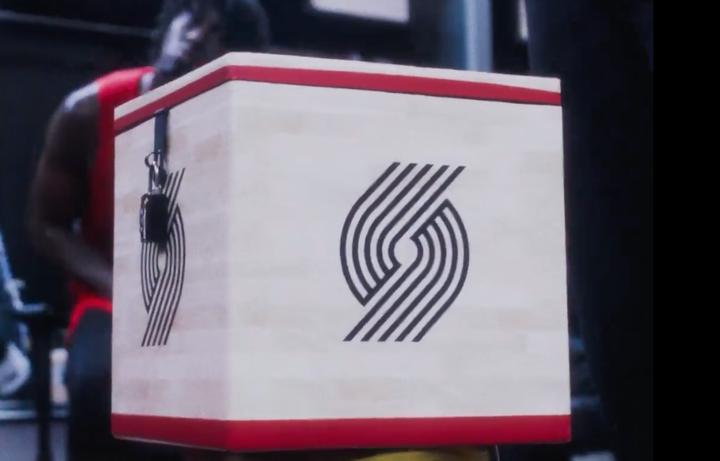Joe Cronin addresses Damian Lillard's trade request: 'We're Going to Be Patient'
The Trail Blazers' general manager spoke to reporters for the first time since Lillard asked out on July 1.

LAS VEGAS — A year ago this time, Joe Cronin gave a press conference in one of the meeting rooms at the Thomas and Mack Center during Summer League to announce Damian Lillard's two-year, $122 million extension that kept him under contract with the Trail Blazers through 2027. This time, the setting was the same but the circumstances couldn't be more different.
Ahead of the team officially re-introducing the newly re-signed Jerami Grant and Matisse Thybulle, the Blazers' general manager took the podium by himself to speak to reporters for the first time since Damian Lillard's July 1 trade request.
Over the first four days of Summer League, Lillard's future and the timing of a potential trade has been a near-constant topic of conversation among agents, team executives and press. But as it stands, nothing has changed about the situation. Both Cronin and Lillard's agent, Aaron Goodwin, have made clear where they stand, both through anonymous leaks to their preferred media insiders and, now, in on-the-record comments. Lillard only wants to be in Miami, and Cronin is in no rush to send him there if he doesn't get a deal he feels is an acceptable return for the franchise's all-time leading scorer.
In other words, don't expect this to get resolved anytime soon.
We've covered before how Cronin, both after the trade deadline and after the season, overpromised in press conferences about going all-in to make win-now moves around Lillard. On draft night, after taking Scoot Henderson with the No. 3 overall pick, he came off downright naive, almost in denial, to the possibility that drafting a 19-year-old who plays the same position as Lillard could lead his franchise point guard to request a trade.
But on Monday, Cronin hit all the right notes. He was firm in his stance that he won't deal Lillard unless he gets a fair return. He made plain his frustration with Lillard and his representatives limiting the acceptable destinations to one team that has nothing good to trade, without throwing Goodwin under the bus. He was more vulnerable and introspective than I've ever heard a front-office executive be about his own role in creating this situation.
"It wasn't necessarily intentional, it was doing what's best for this team," Cronin said of the series of not exactly win-now moves he's made over the past year. "And we kept doing that, and I could see why Dame would look at it and say [Portland] wasn't a win-now opportunity like some other places. From that perspective, I understand his position and I respect it. It makes sense to me why he would look to go elsewhere."
Not to belabor this point, but this press conference would not have gone this way with the previous holder of Cronin's position.
"I don't feel that I did everything, because I wasn't able to get done what we'd hoped to get done," Cronin said. "The effort being there, which it was, that's one thing. But actually getting the result is another. And to that extent, I do feel like I failed Dame. Our goal was always to build around him and be as high-level as possible as quickly as possible. Even internally, if we thought we were going the right direction, if he didn't feel that way, it makes it a failure on my end."
Truthfully, there's no bad guy here. Both Cronin and Lillard had major public missteps in the weeks leading up to the draft—the GM being a little too eager to vocalize his intention to make win-now trades, the superstar being a little too willing to go on boxing podcasts and talk about wanting to play in Brooklyn or Miami.
But from draft night on, everybody's positions and actions have been entirely reasonable. Cronin was right to feel drafting Henderson was a better move than any trade he could have made with the third pick; Lillard has every right to feel however he feels about the Blazers essentially drafting his replacement after he'd said he didn't want to play with more kids.
Even in the increasingly messy public war of words and leaks, neither side is acting out of pocket. Goodwin's job is to do everything in his power to get his client where he wants to go; Cronin's job, if Lillard is ultimately traded, is to get something back that sets the Blazers up for the future better than what the Heat have to offer.
What could that be?
Cronin declined to get into specifics on Monday about what he's looking for, but the parameters of these types of trades are well-established in recent NBA history. You want draft picks better than the 2028 and 2030 ones Miami has available, or young players with more high-end starter upside than Nikola Jovic and Jaime Jaquez Jr. have.
That kind of package is easier to get when the player gives the team a few options for teams he wants to go to, not just one. That's why this is going to take a while.
"Dame's obviously a very important person and player to us. What the rest of his career looks like matters to us and we care about that. At the same time, we have to do what's best for us. We've got to find the right deal and find the right makeup of the team that we can move forward with. You hope you can find a perfect situation where that lines up, and he goes to a place where he wants to and you get the best return possible. It's complicated and it usually doesn't work out just like that, but my history has shown … I've done this with C.J. McCollum and Josh Hart, where we've worked together to find good landing spots while getting a fair return to the Trail Blazers. It's possible, but there's a lot of work involved, and it often involves more than just one destination."
Lillard's camp, and the Heat front office, are hoping no other options emerge and Cronin is forced to hold his nose and take Miami's deal. But we're less than one year removed from two examples of other, ultimately better, ways these things can go.
Last offseason, it was an open secret that New York was the only place Donovan Mitchell wanted to go. The Jazz didn't like what the Knicks were offering, so talks reached the same stalemate these Blazers-Heat talks have. Later in the summer, Cleveland came in with an offer Utah liked more, so Danny Ainge took it, and Mitchell talked himself into it because it was a good basketball situation.
The Nets, meanwhile, somehow recovered from a summer when Kevin Durant issued an ultimatum to ownership to either trade him to Phoenix or fire both head coach Steve Nash and general manager Sean Marks. Once again, none of the deals Marks found were ones he thought were fair, so he didn't trade Durant, who started the season by showing up and doing his job like the pro he is until they revisited talks at the deadline and ultimately traded him to Phoenix.
The noise coming out of Lillard's camp that if he's still in Portland when the season starts, or if he's traded somewhere other than Miami, he wouldn't report to training camp or would sit out is laughable to anyone who's spent any time around Lillard or knows him in the slightest. He's not Ben Simmons, and nobody in the league that I've talked to in Las Vegas thinks that's a real threat.
If Lillard is still a member of the Portland Trail Blazers when training camp comes around, will it be awkward and uncomfortable for him and Cronin? Yes. Will it be a little unfair to Henderson, whose exciting NBA debut will be clouded by a controversy he had nothing to do with creating? Also yes. But this is the NBA. Teams have gotten past worse things.
"I think what I've learned more than anything is patience is critical," Cronin said. "Don't be reactive, don't jump at things just to solve a problem. I think the teams that have ended up in the most positive situations post-trade are the ones that have been really diligent in taking their time and not being impulsive. The teams that really kept their urgency under control. So I think that's how my approach is going to be with this. We're going to be patient. We're going to do what's best for our team and we're going to see how this lands. If it takes months, it takes months."
This is the biggest deal Cronin will ever make. If he trades Lillard and doesn't get much back, his career as an executive may be over soon. And he's still holding out a sliver of hope that Lillard could have a change of heart and decide he's happy to stay in Portland, which has also been done. By his own admission Monday, he hasn't talked with Lillard directly since the trade request. Maybe at some point in the next few weeks, the two of them will get in a room together by themselves, without Goodwin or anyone from Blazers ownership present, and iron things out.
"I haven't lost hope, just because I understand that this league is complicated and things can change very quickly," he said. "Sometimes you gain new information, sometimes something isn't what you thought it was, and it's something that in this league, you've got to constantly stay nimble and adjust to changing circumstances. I don't know what the future holds. I don't know what will end up happening here. I just know that I won't be surprised if something different happens than what we were originally expecting."




Comments ()